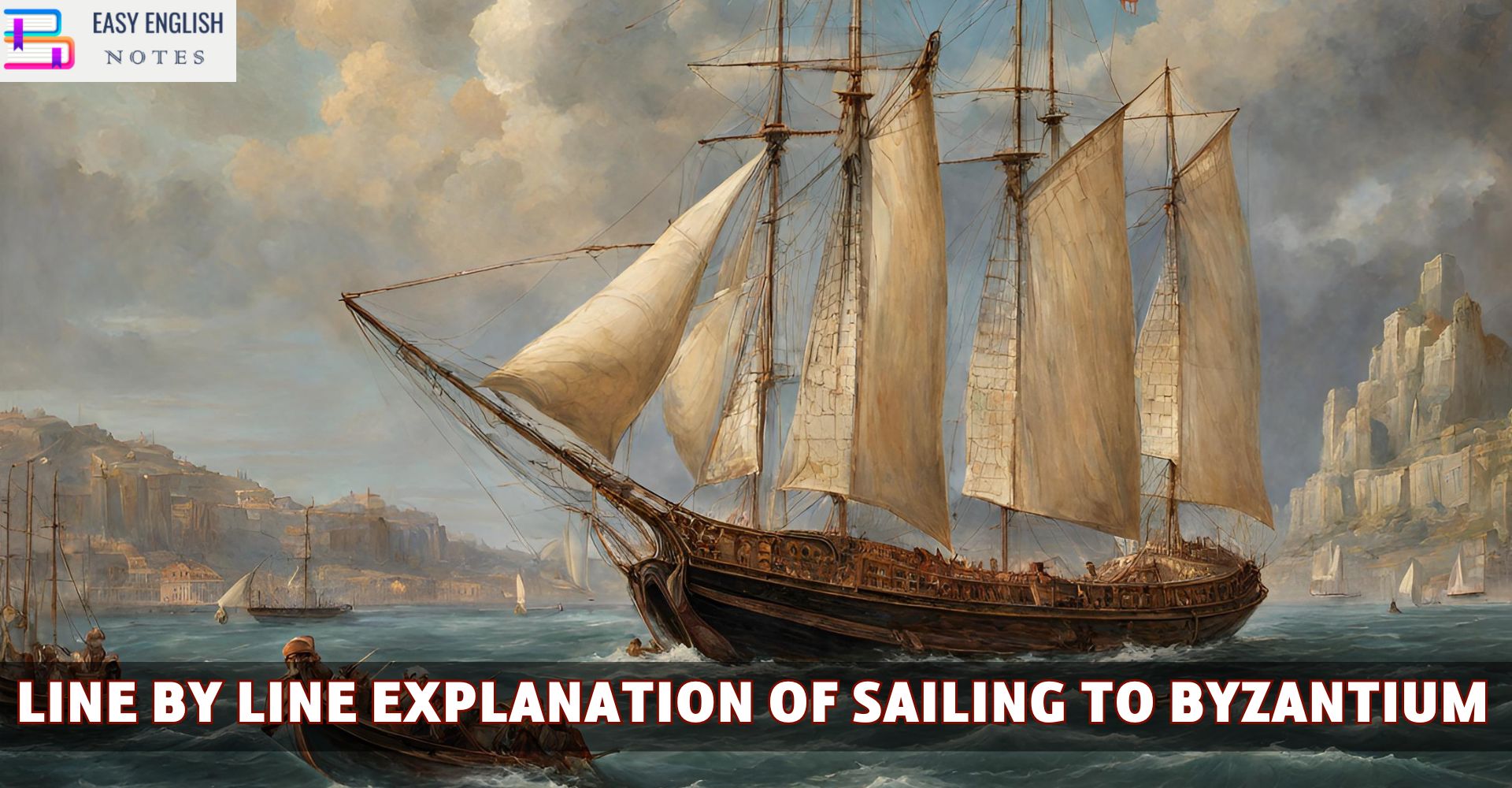(1) An aged man is but a paltry thing,
A tattered coat upon a stick, unless
Soul clap its hand and sing and louder sing,
For every tatter in its mortal dress.
These lines have been taken from the poem, “Sailing to Byzantium” written by W.B. Yeats. Here he spotlights the miseries and problems of old age. An old man cannot enjoy the sensual pleasure of youth. His body decays. He loses strength and vitality. He moves fast toward death. He is quite worthless. He is an apology of man. He is as good as a tattered coat hanging by a stick. There is no joy, no music in his life. He thinks of nothing except his own old age. He is in fact, a complete misfit in the Irish world. It is the world of young people moving arm in arm. They sing and dance. They enjoy every moment of their waking hours.
Also Read :
- Compare Hamlet with Macbeth, Othello and other Tragedies
- “The Pardoner’s Tale” is the finest tale of Chaucer
- Prologue to Canterbury Tales – (Short Ques & Ans)
- Confessional Poetry – Definition & meaning
- Line By Line Explanation Of The Poem The Eve of St. Agnes
The poet feels the weight of advancing years. He is bowed down with grief. There is no desire left for sensual pleasure. Nor is there any zest for all that he enjoyed in his youth. Death stares him in the face. He, therefore, wants to escape to the city of Byzantium. He longs for the world of art and spiritual immortality.
(2) Consume my heart away, sick with desire
And fastened to a dying animal
It knows not what it is; and gather me
Into the artifice of eternity.”
These lines have been taken from the the third stanza of Year’s poem “Sailing to Byzantium. As he has come to the city of Byzantium, he’s face to face with the carved images. He invokes saints and sages of hisory to instil the fervour of dedication in him. He refers to the golden splendour on the mosaic frieze of Santo Apollianre Nuovo in Ravenna. He feels that the saints achieve Godhood and hence they may purge his heart which is yet sick with desire of the dross. His heart is fastened to an old body in the process of death. He, therefore, prays to the Saints to gather him into the artifice of lasting life. He prays to be instructed in spiritual wisdom. His body should be diversted of the ignorant desires and fired with zeal for the life of imagination.
(3) Once out of nature, I shall never take
My bodily form from any natural thing.
But such a form as Grecian goldsmiths make Of hammered gold and gold enamelling
To keep a drowsy emperor awake;
To sit upon a golden bough to sing
To lords and ladies of Byzantium
Of what is past, or passing, or to come. This is the last stanza of the famous poem by W.B. Yeats entitled “Sailing to Byzantium”. After having prayed to the sages in the third Stanza, the poet expresses his dislike for human body in the present form. He says that if he dies and if he has to choose a body to live in once again, he would not take any bodily form. He would like to be a piece of art- an animate one the like of which the Grecian goldsmiths have made in Byzantium. King Theophilus of Byzantium had a golden tree on the branches of which were golden birds created by the goldsmiths. These birds represented the songs that might have been sung to the kings, either to wake up the sleep-heavy lids of the king or to entertain the common people. Yeats’ hatred for body and preference for a life of intellect and spiritual wisdom takes a mature turn in the last stanza of the poem.











